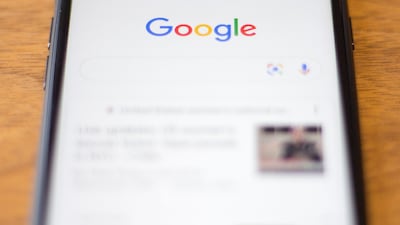Google has announced a more powerful search engine technology that combines search criteria for more accurate and tailor-made results, as it seeks to leverage its artificial intelligence expertise to streamline user experience and maintain its hold on web traffic.
The company unveiled the platform at its Search On '21 event, during which Google executives discussed how their AI developments aim to make information on the web more useful while curbing the spread of misinformation.
"There’s more information accessible at people’s fingertips than at any point in human history. And advances in artificial intelligence will radically transform the way we use that information, with the ability to uncover new insights that can help us both in our daily lives and in the ways we are able to tackle complex global challenges," Prabhakar Raghavan, a senior vice president at Google, said.
Google is seeking to claw back and retain market share, particularly in the shopping space, as more users are bypassing its search engine to directly access platforms.
It has already lost the top spot to Amazon as more people now directly shop from the e-commerce company's platform. For Apple users, a search can simply be done by executing a voice command to its AI assistant Siri.
“The consumer will shop where convenience, ease of finding products and product availability is most satisfactory. Search features that facilitate the best experience will be a draw for consumers – number of clicks to order fulfilment and returns processes will be a factor," Leslie Hand, group vice-president at IDC Retail and Financial Insights, told The National on Thursday.
"Google and various retailers have marketplaces that compete with Amazon, Alibaba, Lazada and others around the world.”
The Covid-19 pandemic caused a major shift in consumer preferences and accelerated the shift to digital as homebound users increasingly turned online to shop, keep entertained and work. A recent PwC survey showed that 44 per cent of consumers shop using a smartphone, with 42 per cent saying they use voice assistants at home.
Google teased the MUM technology during its annual I/O summit last May. It uses its so-called T5 - Text-To-Text Transfer Transformer - framework and is said to be 1,000 times more powerful than the Bert (Bidirectional Encoder Representations from Transformers) technology the company currently uses.
The revamped search technology, using the company's image-recognition tool Google Lens, will combine data from text, images and even videos, which would then provide more accurate and tailor-made results. Lens has been updated with new AI-powered language features that will narrow searches further.
"For example, when you search for 'cropped jackets', we’ll show you a visual feed of jackets in various colours and styles, alongside other helpful information like local shops, style guides and videos," Bill Ready, president of commerce, payments and next billion users at Google, said.
group vice-president at IDC Retail and Financial Insights
"From there, you can easily filter your search by style, department, brand and more – and when you find something you like, you can check out ratings, reviews and even compare prices to get the best deal."
A 'Lens mode' option will be added to the Google app on Apple's iOS. It will, however, be initially available only in the US, with a global roll-out thereafter.
The company also wooed prospective users last year by allowing businesses to list their products and services for free on Google Shopping. The platform had charged certain fees since 2012.
Other features introduced by Google to stay more relevant in search, include a new 'wildfire layer' on its Maps application, as forest fires become more common globally due to climate change. The feature gives users up-to-date details about multiple fires at once, with links to relevant government and emergency response services.
The 'About This Result' feature has also been given additional options, including more information about sources and what other users have said about sites, in a bid to combat misinformation.


